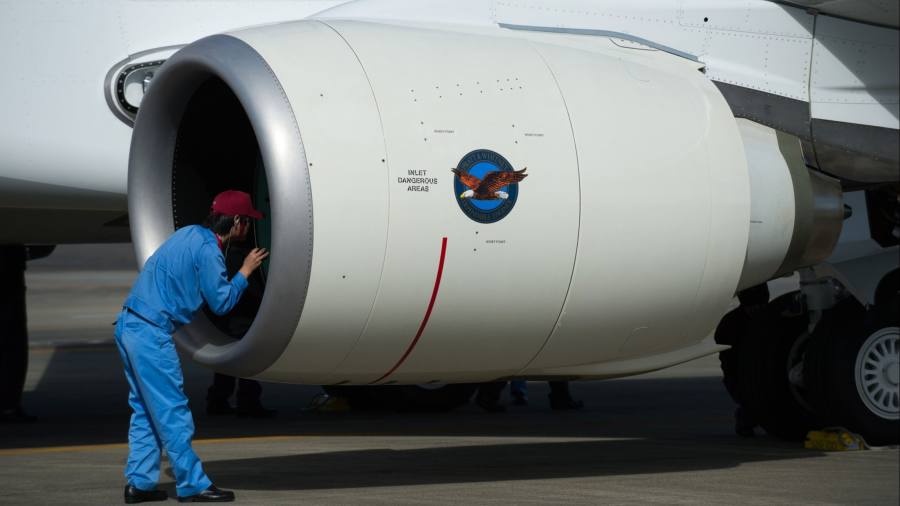Receive free Aviation accidents and safety updates
We’ll send you a myFT Daily Digest email rounding up the latest Aviation accidents and safety news every morning.
Hundreds of aircraft worldwide will be grounded over the next few years owing to problems with Pratt & Whitney engines, in a $3bn hit to parent RTX and another setback for airlines already struggling to meet soaring post-pandemic travel demand.
The US aerospace and defence group, formerly known as Raytheon, said P&W will recall 600-700 engines from 2023 to 2026, leading to the grounding of an average 350 aircraft a year.
RTX said it would post a charge of up to about $3.5bn in the third quarter, mostly owing to compensating its customers, and $1.5bn less in free cash flow in 2025, a greater hit than it initially signalled in July.
The Arlington, Virginia-based company now expects full-year sales of $67.5bn to $68.5bn compared to $67.1bn in 2022. It had raised guidance in July for sales of between $73bn and $74bn.
Shares in RTX, which have been declining since it disclosed the metal problem in July, were down almost 7 per cent in morning trading in New York.
The group said in July that contaminants in the powdered metal used to make its PW1100G-JM geared turbofan engines installed in Airbus aircraft meant that some of its engines would need to be inspected earlier than anticipated.
The problem could cause cracks in the high-pressure turbine discs during manufacture and the company “found cracks that were larger than we had anticipated”, Chris Calio, the chief operating officer, told analysts on Monday.
Greg Hayes, chief executive, described the disruption as “frustrating”, adding that it will “have a significant impact on our customers, on our partners and on RTX”.
When each engine is removed from the wing of an A320neo narrow-body jet, it will take an average of between 250 and 300 days for the aeroplane to be returned to its airline.
Calio warned that the engine inspections and any replacements “will create more congestion” in the company’s maintenance, repair and overhaul network, which have already delayed turnaround times because of problems getting materials.
RTX said its “plan currently is to continue to meet our commitments to Airbus” with new engine and spare parts deliveries. The fallout from the issue, however, could yet hamper Airbus’s plans to raise output of its A320 family over the next two years.
The European group said on Monday that it remained in “constant dialogue” with P&W and its customers, and that it did not expect an impact on its “2023 deliveries nor on our 2024 ramp-up plan”.
The grounding of so many commercial aircraft has sent carriers rushing to find spare parts and engines to avoid cancellations.
Rob Stallard, analyst at Vertical Research, said the $3bn charge was “larger than expected” after the company had previously estimated that the first 200 engines that would need inspections would reduce free cash flow by $500mn this year.
When taking into account its risk and revenue sharing partners in the PW1100 engine programme — P&W’s share is 51 per cent — the total bill is expected to be in the range of $6bn-$7bn, said RTX. About 80 per cent is expected to go towards customer compensation and the other 20 per cent to labour and materials, according to chief financial officer Neil Mitchill.
One of its engine programme partners, MTU Aero Engines, with an 18 per cent share, issued a profit warning on Monday on what was an “otherwise stable forecast” for 2023.
The German group estimated the impact to be €1bn in revenues and earnings before interest and taxation in the current fiscal year, with liquidity impact continuing from 2024 to 2026.
Read the full article here




